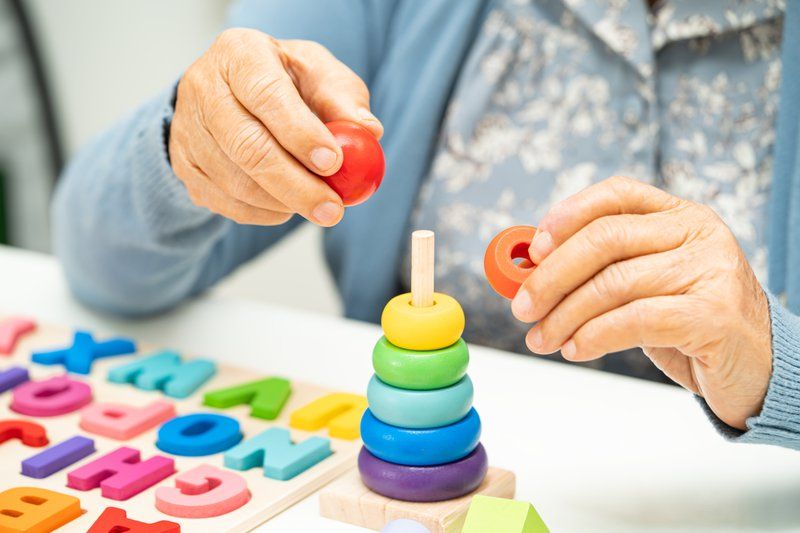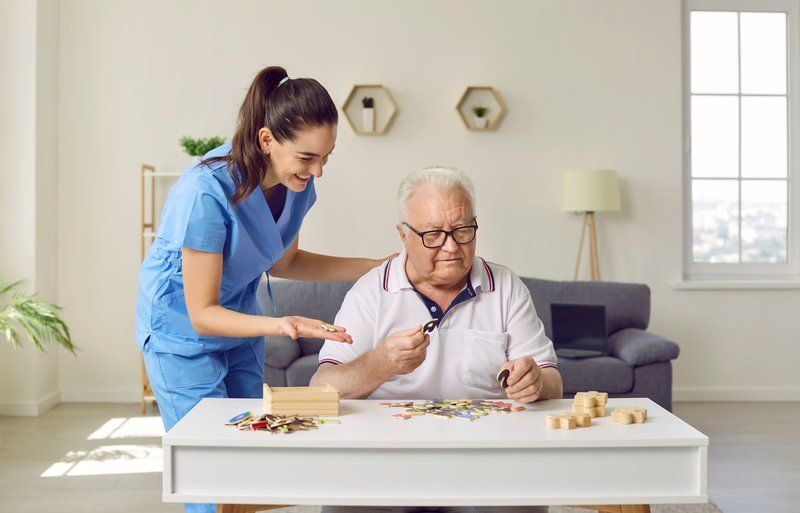
From individuals grappling with Alzheimer’s disease and dementia to those recovering from traumatic brain injuries, cognitive rehabilitation plays a pivotal role in enhancing daily functioning and overall quality of life. By looking at evidence-based techniques, supportive resources, and future innovations, we can gain a comprehensive understanding of the significance and potential of cognitive rehabilitation in the context of memory care and assisted living.
This exploration aims to shed light on the practical implications and empowering effects of cognitive rehabilitation, ultimately unveiling its potential to positively shape the lives of those in need.
Evidence-Based Techniques in Cognitive Rehabilitation
Evidence-based techniques form the cornerstone of effective programs, harnessing the latest research and proven methods to empower individuals with memory care needs. By looking at specific cognitive exercises, therapeutic approaches, and innovative technologies, the path to cognitive rehabilitation becomes clearer and more impactful.

Cognitive Exercises
Engaging individuals in targeted cognitive exercises, such as memory games, problem-solving tasks, and attention-building activities, forms a fundamental aspect of cognitive rehabilitation. These exercises are designed to stimulate cognitive functions, enhance memory retention, and improve overall mental acuity.
Therapeutic Approaches
Leveraging therapeutic approaches, including cognitive behavioral therapy and reminiscence therapy, provides individuals with a supportive framework for addressing emotional and cognitive challenges. These evidence-based interventions aim to promote emotional well-being, reduce anxiety, and enhance cognitive resilience.
Innovative Technologies
Embracing innovative technologies, such as virtual reality platforms and interactive cognitive training tools, opens new frontiers in cognitive rehabilitation. These cutting-edge solutions offer immersive experiences and personalized cognitive training, catering to the unique needs of individuals with memory care requirements.
By navigating these evidence-based techniques, cognitive rehabilitation programs can effectively address the diverse cognitive and emotional needs of individuals, fostering a holistic approach to memory care and assisted living.
Impact of Cognitive Rehabilitation on Daily Functioning
Cognitive rehabilitation plays a pivotal role in enhancing the daily functioning of individuals with memory care needs, fostering a positive and purposeful lifestyle within the context of memory care and assisted living.
Activities of Daily Living
By addressing cognitive impairments and promoting mental acuity, cognitive rehabilitation empowers individuals to independently engage in activities of daily living, such as personal hygiene, meal preparation, and household tasks. This fosters a sense of autonomy and self-reliance, contributing to an enhanced quality of life.
Social Engagement
Through targeted cognitive exercises and therapeutic interventions, cognitive rehabilitation facilitates improved social engagement, enabling individuals to participate in communal activities, interact with peers, and maintain meaningful social connections. This social integration fosters a sense of belonging and emotional well-being.
Overall Quality of Life
The practical implications of cognitive rehabilitation extend to the overall quality of life for individuals with memory care needs, promoting a sense of purpose, independence, and fulfillment. By enhancing cognitive abilities and emotional resilience, it contributes to a holistic and enriching living experience.
By empowering daily functioning in this way, individuals with memory care needs can embrace a lifestyle that prioritizes independence, social connection, and a meaningful sense of purpose within the supportive environment of memory care and assisted living communities.
Multidisciplinary Support
A comprehensive array of supportive resources is instrumental in optimizing the journey for individuals with memory care needs. This multidisciplinary approach encompasses personalized care, therapeutic interventions, and community engagement, fostering a holistic and empowering environment.

Personalized Care
Tailoring care plans to the unique cognitive and emotional needs of each individual forms the bedrock of success. Personalized care ensures that interventions are precisely aligned with the individual’s cognitive strengths and challenges, maximizing the effectiveness of the rehabilitation process.
Therapeutic Interventions
Embracing therapeutic interventions , including cognitive behavioral therapy, occupational therapy, and speech therapy, provides individuals with a diverse toolkit for addressing cognitive impairments and enhancing daily functioning. These evidence-based interventions are tailored to the specific needs of each individual, promoting targeted cognitive and emotional growth.
Community Engagement
Fostering community engagement within memory care and assisted living communities creates a supportive and enriching environment for individuals. By participating in communal activities, social events, and group therapies, individuals can cultivate meaningful connections and a sense of belonging, contributing to their overall well-being.
By leveraging these supportive resources, individuals can embark on a transformative journey towards enhanced cognitive abilities, improved daily functioning, and a fulfilling lifestyle within the nurturing embrace of memory care and assisted living communities.
As we look to the future of cognitive rehabilitation , it is ripe with emerging innovations and progressive developments that hold the potential to redefine memory care and assisted living. Technological advancements, such as virtual reality platforms and interactive cognitive training tools, are poised to revolutionize these practices, offering personalized and immersive experiences for individuals with memory care needs.
Furthermore, ongoing research breakthroughs are paving the way for enhanced therapeutic interventions and a deeper understanding of cognitive functioning, promising a future where cognitive rehabilitation continues to empower individuals, optimize daily functioning, and enrich lives. For more information, visit https://www.assuredassistedliving.com/ to explore the transformative possibilities.
Individualized, positive care in a residential setting. Contact us today, or download our free Family Decision Toolkit guide for more information.


